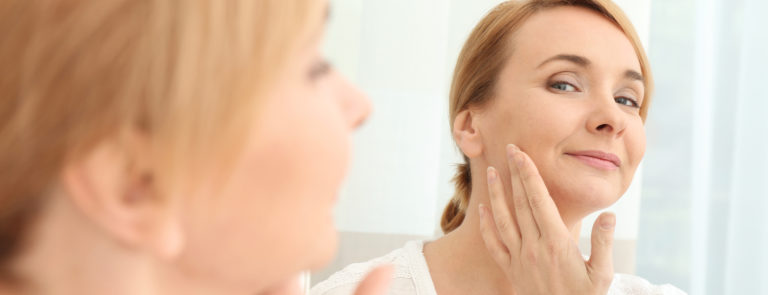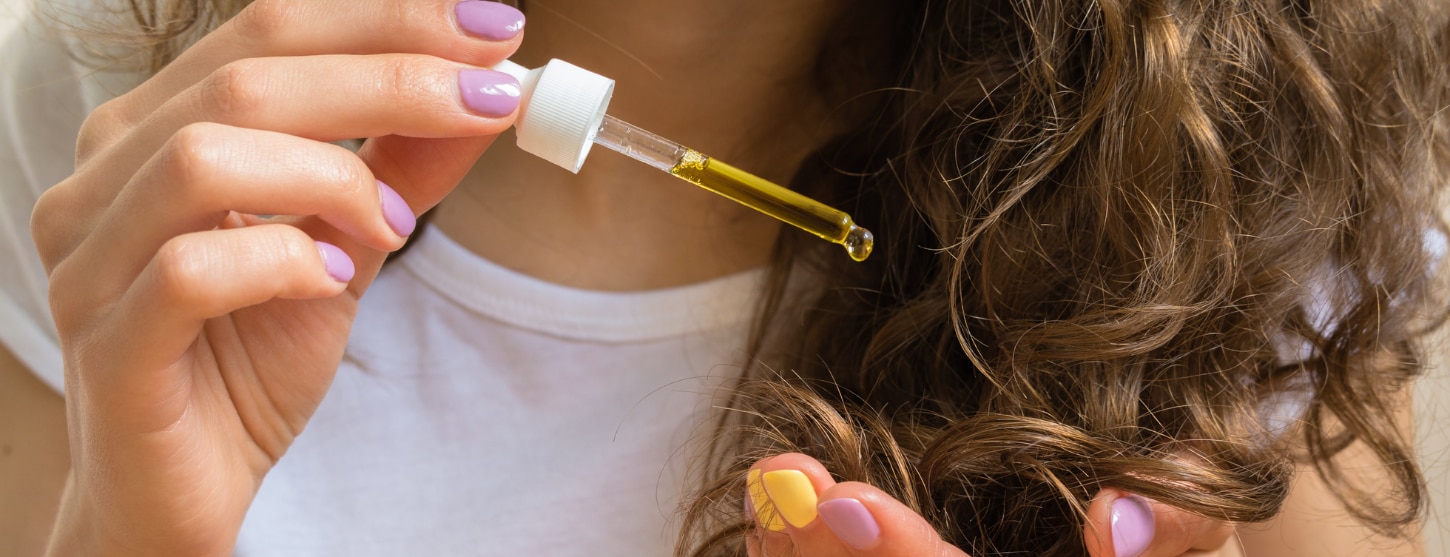15% off €25
Code:BASKET
Common skin conditions: what you need to know

Common skin conditions cause symptoms like dry skin, spots and sores. Find out the specific skin conditions these fall under and ways to manage them.
Summary
1Acne
Acne is most common in teenagers and young people, but can affect adults – in fact, it affects 80% of people aged 11 to 30 years.
2Hives (urticaria)
Hives can affect around one in five people at some point in their lives. They appear as a raised, red, itchy rash on the skin.
3Psoriasis
Around 1 in 50 people in the UK have psoriasis, a condition causing raised pink or red skin patches (plaques) with white, silvery scales on your body.
'Is your skin dry, itchy, spotty or sore? Get the low-down on some of the most common skin conditions and how you can help manage them'
Written by Victoria Goldman on March 7, 2019 Reviewed by Dr Nicole Chiang on March 15, 2019
Your skin is your largest organ – protecting against germs, helping to prevent damage, keeping your body at the right temperature – so it’s important to look after it.1 But skin problems are incredibly common. According to the British Skin Foundation, 60% of us currently have, or have experienced, a skin condition.2
Read our guide to the most common, plus some easy ways to help manage them.
Eczema
Eczema is a dry skin condition that affects one in five UK children and one in 12 adults. If you have eczema, your skin barrier doesn’t work properly, leaving it susceptible to damage, infections and allergies.
Atopic eczema, the most common type, often runs in families and can be linked to hay fever and asthma.3 Your skin may be:4
- dry, scaly and red
- itchy and easily irritated
- weeping, crusting and bleeding
How to manage your eczema
There’s a lot you can do to soothe symptoms and protect your skin:5
- apply rich moisturisers, called emollients, to treat and prevent flare-ups
- don’t scratch your skin (this may make your eczema worse) and avoid heat, dust, woolly clothing, pets and irritant chemicals, such as soap
- eat oily fish or take omega-3 supplements – a 2008 study in British Journal of Dermatology found omega-3 essential fatty acids may be useful for symptoms of atopic eczema6
Contact dermatitis
Contact dermatitis is a form of eczema caused by direct contact with either irritant chemicals, such as soap and detergents, or allergens, for example nickel or hair colourants. As a form of eczema, it causes a similar rash; dry, red, itchy and flaky skin on your hands, arms, neck or face.8 Contact dermatitis affects 9% of people in the UK.9
Managing your contact dermatitis
Here’s how to improve your symptoms:10,11
- apply thick emollients to your skin several times a day to protect your skin barrier, which help prevent and treat mild flare-ups
- avoid touching irritant chemicals with your bare skin, and try not to wash your hands too often as this can damage the skin barrier
- use natural, hypoallergenic hair colourants – look for those free from paraphenylenediamine (PPD), a common irritant, and always patch test first
Acne
Acne is most common in teenagers and young people, but can affect adults – in fact, it affects 80% of people aged 11 to 30 years.12 It occurs when hormones encourage your skin’s oil-producing sebaceous glands to make excess oil. This traps the skin’s natural bacteria, which then multiply and trigger inflammation.13,14 Acne can affect your face, neck, chest and back.
You may have:15
- oily skin
- blackheads and whiteheads
- red spots
- yellow pus-filled spots
- large, sore spots, called cysts
- scarring
How to manage your acne
It’s important to use a gentle cleanser or one designed for spot-prone skin.16
You can also try:
- tea tree oil – a 2017 Australian study found that tea tree oil products may help to ease mild to moderate acne with few side effects17
- jojoba oil – mix it with a gel, cream or clay face mask.18 A 2012 study by Charité University Hospital, Berlin reported that it may help to reduce and prevent acne breakouts19
- sulphur – a review of over-the-counter acne treatments in 2012 found sulphur has antibacterial properties that can help ease mild acne, but the downsides included a slightly unpleasant smell and the fact it can cause mild skin irriration20
Psoriasis
Around one in 50 people in the UK have psoriasis, a condition causing raised pink or red skin patches (plaques) with white, silvery scales on your scalp, hands, knees, elbows and lower legs, or sometimes across your whole body. It can affect your nails and joints too, and the plaques may feel itchy and sore.21
Psoriasis is caused by increased skin cell production and often runs in families, but it needs a specific trigger to set it off, such as an infection, intense sunlight or stress.22
How to manage your psoriasis
Mild symptoms may be treated with rich emollients, tar products and topical steroids, but for more severe symptoms, speak to your GP or a dermatologist – you may need stronger or specialist treatments.23
To prevent flare-ups, maintain a healthy weight, reduce stress, don’t smoke and avoid drinking too much alcohol.24 There is also an increasing amount of evidence that suggests psoriasis is linked with cardiovascular disease.25 This makes it even more important to follow a healthy lifestyle to help reduce your risk of developing conditions such as high blood pressure, obesity and diabetes.
Hives (urticaria)
Hives can affect around one in five people at some point in their lives. They appear as a raised, red, itchy rash on the skin, including bumpy, itchy weals – like nettle stings – which usually disappear within 24 hours. There’s often no specific cause, but hives can be triggered by an allergic reaction, infection, or even cold or hot weather.26
Managing hives
Take antihistamines until the weals disappear – some people need daily antihistamines to prevent regular flare-ups. A GP may prescribe a short course of steroid tablets for severe symptoms.27
You can also try:
- avoiding heat, tight clothes and alcohol, as these can make hives worse.
- thinking back to see if you can work out the specific trigger, and then avoid it – if possible
- NHS Education for Scotland. Your Dermatology Pocket Guide: Common skin conditions explained
- British Skin Foundation. Who we are
- National Eczema Society. What is eczema?
- British Skin Foundation. Eczema
- As above
- Koch C, et al. Docosahexaenoic acid (DHA) supplementation in atopic eczema: a randomized, double-blind, controlled trial
- As Source 4
- British Skin Foundation. Contact dermatitis
- National Eczema Society. Contact
- As above
- NHS. Hair dye reactions
- NHS. Overview: Acne
- British Skin Foundation. Acne
- As Source 12
- As Source 13
- As Source 13
- Malhi HK, et al. Tea tree oil gel for mild to moderate acne, a 12 week uncontrolled, open-label phase II pilot study
- Jennifer Huizen. Medical News Today. 15 Home Remedies for Acne
- Meier L, et al. Clay jojoba facial mask for lesioned skin and mild acne – results of a prospective, observational study
- Decker A, Graber EM. Over-the-counter Acne Treatments – A Review
- British Skin Foundation. Psoriasis
- As above
- British Association of Dermatologists. Topical treatments for psoriasis
- As source 21
- Erica Roth and Kathryn Watson. Healthline. The Heart-Psoriasis Connection: What You Need to Know
- NHS Inform. Urticaria (hives)
- British Skin Foundation. Urticaria and angioedema
Advice is for information only and should not replace medical care. Please check with your GP before trying any remedies.



